Neither Snow Nor Rain
For more than two centuries, the postal system has been a fundamental part of American life. But modern technology has raised serious questions about its viability.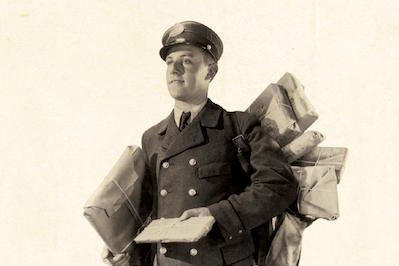
“Neither Snow Nor Rain: A History of the United States Postal Service” A book by Devin Leonard To see long excerpts from “Neither Snow Nor Rain” at Google Books, click here.
“How the Post Office Created America” A book by Winifred Gallagher To see long excerpts from “How the Post Office Created America” at Google Books, click here.
For more than two centuries, the postal system has been a fundamental part of American life. Established by the Second Continental Congress in July 1775, with Benjamin Franklin as its first postmaster general, the system blossomed along with the country, serving as a vital means of communication that helped bind the new nation together. But modern technology such as email has superseded much of the U.S. Postal Service’s traditional work, raising serious questions about its viability. Two new books delve into the history and evolution of “the biggest business in the country,” as President Harry Truman once called the postal system. “Without it,” he said, “the rest of the country would not be able to do business at all.”
Both books, “Neither Snow Nor Rain” by Devin Leonard and “How the Post Office Created America” by Winifred Gallagher, cover much of the same ground, taking us from the system’s formation to the recent struggles to contain costs. We learn that in colonial days, “Philadelphians could send a letter to New York and get a response in 24 hours.” (Apparently the horses back then were faster than trucks today, but then they didn’t have to contend with I-95.) Leonard devotes a chapter to “going postal,” a reference to several gruesome incidents in the 1980s and ’90s when postal workers “went berserk on the job, murdering their co-workers.” Gallagher misses this phase of the system’s history, making only parenthetical mention of a Terry Pratchett novel called “Going Postal.” She works into her account the role of women in the Postal Service, noting that by 1892 more than 6,000 of the 67,000 postmasters were women, mostly in small communities. She introduces us to “Stagecoach” Mary Fields, a 6-foot-tall former slave who was a crack shot and who liked to fight and smoke cigars when she wasn’t delivering mail in Montana.
Gallagher delivers some fascinating anecdotes. For instance, when jeweler Harry Winston donated the Hope Diamond to the Smithsonian Institution in 1958, “he sent it by registered first-class mail from New York City to Washington, D.C., for $2.44 postage plus a very low $142.05 for insurance.”
The authors separate fact from lore. We learn that the Pony Express, although forever associated with the U.S. post office, was actually a private company; those young men racing across the West on horseback with saddlebags full of letters were not post office employees. And “Wild Bill” Hickok and “Buffalo Bill” Cody, who are both identified with the Pony Express, never rode for it.
By the late 19th century, the post office had grown so unwieldy, with 60,000 retail outlets supporting 150,000 employees, that President Benjamin Harrison brought in businessman John Wanamaker to run it. Wanamaker championed rural free delivery and won legislation that turned the post office into a place where people could park their savings. Eventually, it became “America’s largest bank with four million customers and $3.4 billion in deposits.”
Among history’s more interesting postal figures was Anthony Comstock, who persuaded Congress to pass a law prohibiting obscene materials from the mail, legislation that came to be known as the Comstock Law. Appointed as postal inspector, Comstock took his job very seriously. “Within a year of the Comstock law’s enactment, he made 55 arrests under the new law,” Leonard writes, “and he had a scar on his face from an encounter with a knife-wielding pornographer in Newark, New Jersey, whom he still managed to subdue.”
In the 1960s, the post office hit hard times. Its antiquated equipment in deteriorating buildings was unable to cope with a massive volume of mail, newsprint and packages. In 1966, Chicago suffered a catastrophic collapse of service that left a backup of mountains of undelivered mail. In 1970, postal employees staged a widespread strike. Later that year, President Richard Nixon signed the Postal Reorganization Act, transforming the Post Office Department into the new U.S. Postal Service. The aim was to relieve the post office of political interference and pave the way for more efficient management. The head of the USPS is no longer in the Cabinet, the service is run by an independent board of governors, and the last vestiges of the spoils system have been done away with. But Congress has retained ultimate authority over the USPS and continues to meddle in its affairs.
Pressures on the Postal Service are still mounting, and remedies are elusive. Among its constraints, the service is saddled with enormous pension costs, and Congress has balked at permitting the service to enact cost-saving measures, such as closing small post offices or cutting back to five-day delivery. Both Leonard and Gallagher have given us engaging, well-written histories of this troubled behemoth. Gallagher points out that between the early 1980s and 2007, the USPS supported itself without any tax dollars, “an achievement that would have impressed Benjamin Franklin and every postmaster general since.” The core question is whether, given the challenge of digital technology and inept oversight by Congress, it will ever be able to do so again.
Hank H. Cox is a writer in Takoma Park, Maryland.
©2016, Washington Post Book World Service/Washington Post Writers Group
Your support matters…Independent journalism is under threat and overshadowed by heavily funded mainstream media.
You can help level the playing field. Become a member.
Your tax-deductible contribution keeps us digging beneath the headlines to give you thought-provoking, investigative reporting and analysis that unearths what's really happening- without compromise.
Give today to support our courageous, independent journalists.
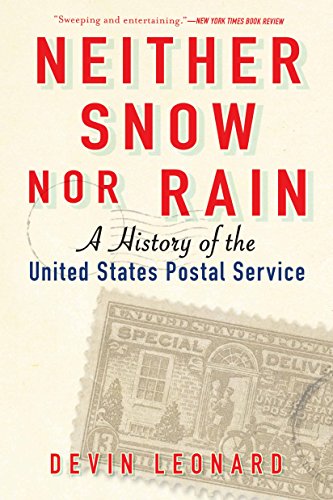
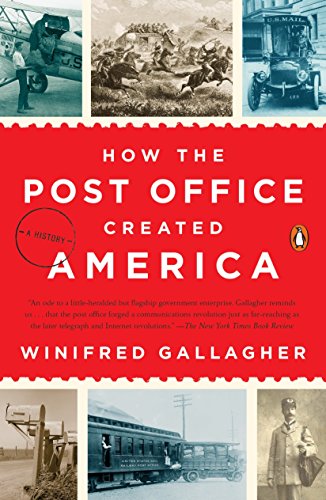


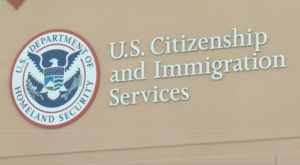
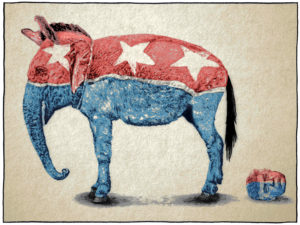


You need to be a supporter to comment.
There are currently no responses to this article.
Be the first to respond.